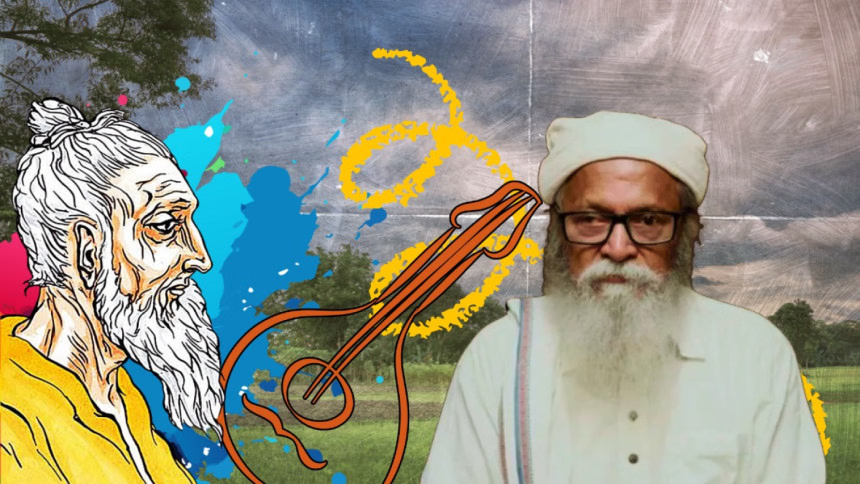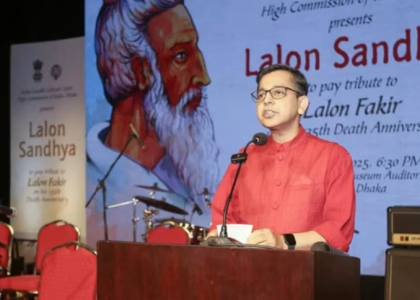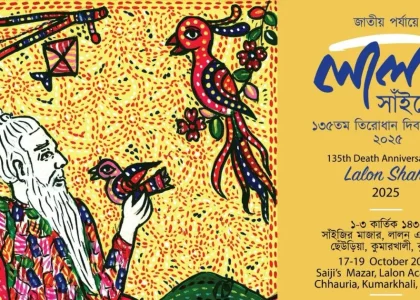Farhad Mazhar has long stood at the unpredictable intersection of poetry, politics, and philosophy. To some, he is a Marxist agitator; to others, a mystical seeker; to many, an enigma. But labels do little justice to someone whose intellectual project cuts across established categories, with little regard for academic gatekeeping or ideological loyalty. At the heart of his recent work lies a remarkable effort to excavate the philosophical foundations of Baul thought—particularly in the songs and sayings of Lalon Fakir—and to place them in conversation with some of the most challenging figures of European thought. This effort, spanning his books Bhabandolon (Mowla Brothers, 2008) and Shainjir Doinno Gyan (Mowla Brothers, 2009), reveals a thinker who is not merely interpreting tradition, but actively reimagining it as a living philosophical resource.
Of course, Mazhar’s interest in Lalon is not limited to metaphysics; it is deeply political too. His reinterpretation of Nityananda–Sri Chaitanya’s companion and, in Mazhar’s telling, the true initiator of Bengal’s revolutionary Bhav movement—allows him to distinguish between bhakti and bhav, between a scriptural devotion tied to Brahminical hierarchy and a folk ontology rooted in bodily practice, sensuality, and resistance. For Mazhar, the spiritual power of Lalon lies not in his rejection of the world, but in his radical commitment to transforming it. The bhav of Nadia is not a mystical escape but a philosophical ground for dismantling caste, class, and coloniality.
There is also the matter of language. Mazhar is acutely aware that bhav cannot be cleanly translated into “idea”, “emotion,” or “feeling”; it hovers between concept and experience, between thought and embodiment. This is why he insists on staying within the Bangla tradition, not out of parochial loyalty but because that is where the term lives. In doing so, he also shows how language is not simply a medium of expression but a condition of thought. Lalon’s verbal artistry is, in this sense, a philosophical labour.
This dream of a Bengali state, grounded in justice and governed perhaps by a philosopher-king, carries more than a whiff of Plato. Mazhar is aware of this, and somewhere in his writings is the dry smile of a man who knows Christendom too was ruled by such philosophers. But even so, he insists on the necessity of ideas. Without bhav, there is no future.
What makes Mazhar unique is that he takes philosophy out of the university and places it alongside farming, folklore, song, and soil. His work with rural farmers, his critique of global agribusiness, and his revival of traditional agricultural knowledge are not a detour from philosophy; they are its continuation by other means. The bhav-centered resistance to Monsanto and Cargill is as central to his thinking as any reading of Hegel or Heidegger.






